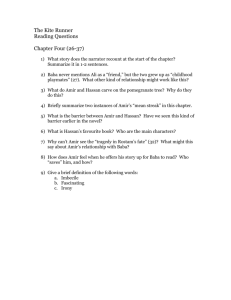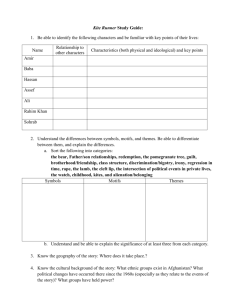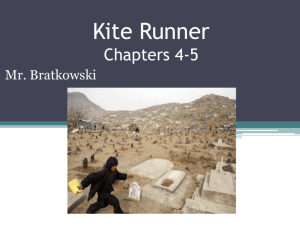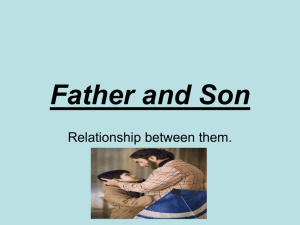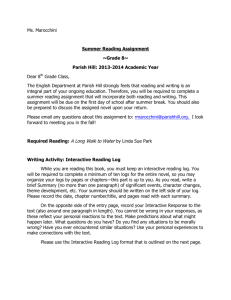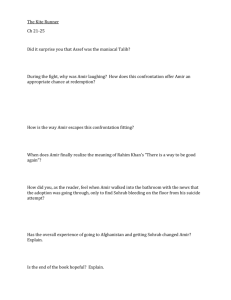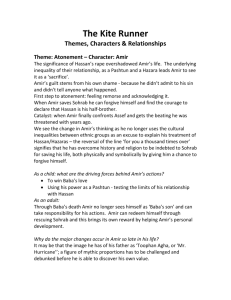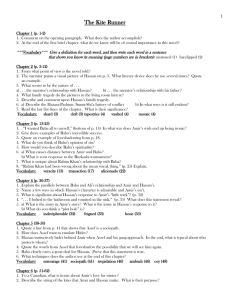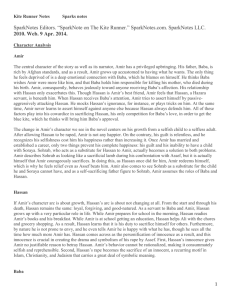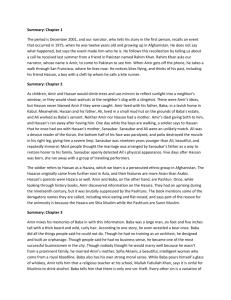Chapters 1-9 of The Kite Runner
advertisement
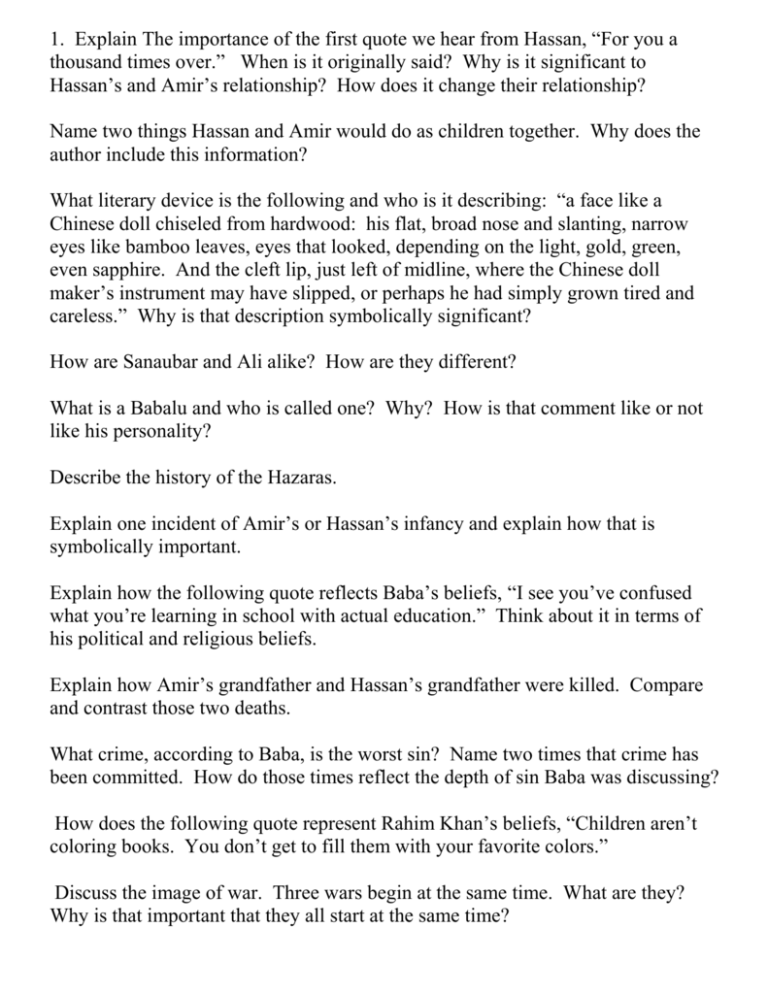
1. Explain The importance of the first quote we hear from Hassan, “For you a thousand times over.” When is it originally said? Why is it significant to Hassan’s and Amir’s relationship? How does it change their relationship? Name two things Hassan and Amir would do as children together. Why does the author include this information? What literary device is the following and who is it describing: “a face like a Chinese doll chiseled from hardwood: his flat, broad nose and slanting, narrow eyes like bamboo leaves, eyes that looked, depending on the light, gold, green, even sapphire. And the cleft lip, just left of midline, where the Chinese doll maker’s instrument may have slipped, or perhaps he had simply grown tired and careless.” Why is that description symbolically significant? How are Sanaubar and Ali alike? How are they different? What is a Babalu and who is called one? Why? How is that comment like or not like his personality? Describe the history of the Hazaras. Explain one incident of Amir’s or Hassan’s infancy and explain how that is symbolically important. Explain how the following quote reflects Baba’s beliefs, “I see you’ve confused what you’re learning in school with actual education.” Think about it in terms of his political and religious beliefs. Explain how Amir’s grandfather and Hassan’s grandfather were killed. Compare and contrast those two deaths. What crime, according to Baba, is the worst sin? Name two times that crime has been committed. How do those times reflect the depth of sin Baba was discussing? How does the following quote represent Rahim Khan’s beliefs, “Children aren’t coloring books. You don’t get to fill them with your favorite colors.” Discuss the image of war. Three wars begin at the same time. What are they? Why is that important that they all start at the same time? A story within a story is a significant aspect of this book. Explain the importance of the story Shahnamah. Who is most powerful in the story? Explain how that person is developed into being a person of power. Who is he powerful against? What elements of power does he abuse? Who was with Amir the night the war began? Who was not? What does that event say? How does Hassan change Assef’s nickname? Why is he able to do that? Why was it ironic that Hassan’s scar from surgery faded? What language does Hosseini use to show innocence? Does everyone see the children as innocent? Prove your answer. Describe the relationship between Amir and Baba. Use specific examples to prove your point. How is the black bear symbolic for Baba? How do you know this from the text? Look back at page12. What roles do books play in Amir’s life. Why? Proof from text? What is the significance of Rahim Kahn’s letter? Look at Baba and Amir’s relationship on pp. 31-32. Why does Baba feel this way? Why does Hosseini have Hassan point out a plot hole in Amir’s story? Why is this significant? (p. 34) Describe the character of Assef. Use examples to prove your answer. “I wondered briefly what it might be like to live with such an ingrained sense of hierarachy.” – Amir p. 42- Why does Amir wonder that? About whom? Is Amir aware of his own ingrained sense of hierarchy? Proof?
